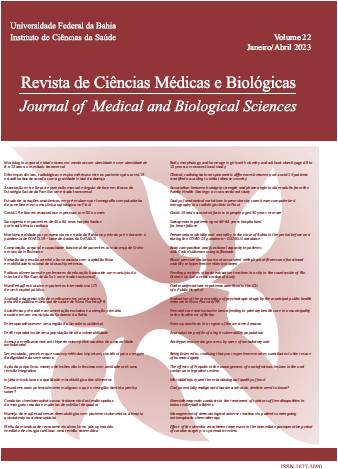Evaluation of the prescription of psychotropic drugs by the municipal public health network in Nova Floresta/PB
DOI:
https://doi.org/10.9771/cmbio.v22i1.44326Keywords:
psychopharmaceuticals; medical prescription; psychoactiveAbstract
Introduction: psychotropic drugs are central nervous system modifiers, which act in psychiatric illnesses with the aim of providing cure or stabilization of these clinical conditions. However, the irrational use of psychotropic drugs is considered a serious public health problem, due to the various damages that this practice causes to the world population. Objective: the objective of this study was to evaluate the prescription of psychotropic drugs by users assisted at the basic pharmacy in the municipality of Nova Floresta/PB. Methodology: cross-sectional, quantitative and descriptive study, between the months of October 2016 to May 2017. Prescriptions and prescription notifications were evaluated according to the information recorded by the prescriber and in the medication dispensing action. Results: 176 psychotropic users were interviewed in Nova Floresta-PB. There was a prevalence of females (58.5%). The prevalent age group was adults, corresponding to 72.7%, followed by the elderly (22.2%). The most widely prescribed psychotropics were amitriptyline (15.4%), phenobarbital (14.4%), clonazepam (12.9%) and diazepam (9.9%). A total of 21 prescriptions with drug interactions were found. As for the prescriptions and the correct filling of the prescription and notification of the prescription, 5.7% of the prescriptions did not have a dosage and/or date. Conclusion: there is a need to raise awareness among prescribers regarding rational prescribing, as well as the need for pharmacists to guide users.
Downloads
Downloads
Published
How to Cite
Issue
Section
License
Copyright (c) 2023 Journal of Medical and Biological Sciences

This work is licensed under a Creative Commons Attribution 4.0 International License.
The Journal of Medical and Biological Sciences reserves all copyrights of published works, including translations, allowing, however, their subsequent reproduction as transcription, with proper citation of source, through the Creative Commons license. The periodical has free and free access.


